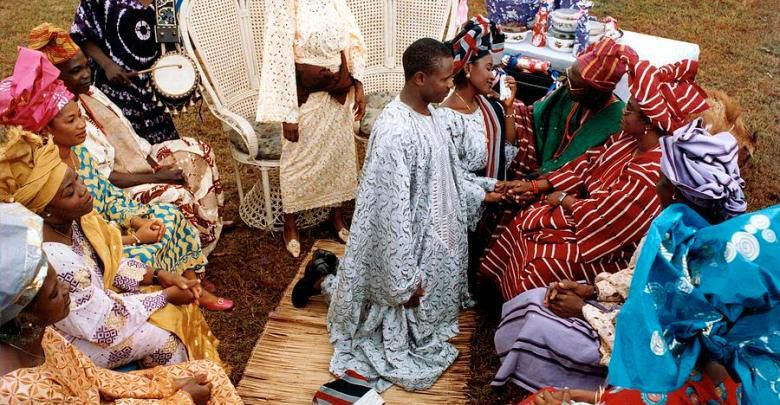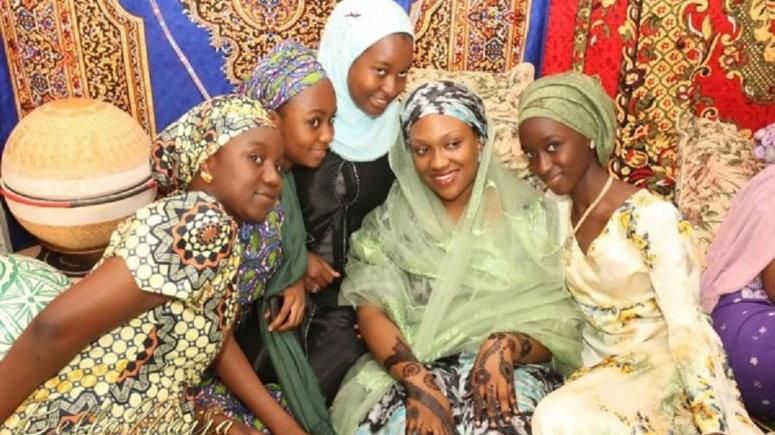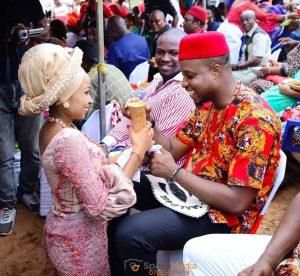Cultural values of the 3 major ethnic groups in Nigeria
)
The cultural values can be seen in the mode of greetings, dressing, marriages etc. Nigerians, mainly, do not joke about their culture. It is held in high esteem and revered across ethnic groups in the country, particularly in the three major ethnic groups in Nigeria: Igbo, Hausa and Yoruba.
The Yoruba cultural values
In the Yoruba cultural values, greetings and respect is a notable culture automatically earned by older people. The Yoruba woman greets by kneeling on both knees for any older person they want to greet, and their men greet by prostrating flat.
The Yoruba's also show respect to older ones by using 'E se' to address people older than them. If you’re young, when communicating with someone older than you, you’re expected to address them as 'E se'.
Also, while addressing people older than you in Yoruba, you don’t call them by their names; you’re expected to call them either ‘Broda’ or ‘Aunti’. These are values regarding greetings and respect that the Yoruba people hold so high.

Another part of the Yoruba culture where their values thrive is during a marriage ceremony. There are steps like Ifojusode, which is being in search of a spouse often done by men. There is also the Itoro, which includes going to solicit a family for the man.
The step after this is Idana, which means betrothal, and the final stage is Igbeyawo which is the marriage process. During Igbeyawo, there are several steps that go into the Igbeyawo. The Engagement ceremony is one of the most important processes in marriage.
The groom and his family are expected to bring a bride price and a list of other things, including yam, kolanut, salt, honey, etc. During the marriage process, it is also expected that the groom prostrates to beg for his wife. All of these are necessary cultural values in Yoruba land.
During their wedding ceremony, the Yorubas are very spectacular in their dressing mode as it speaks volumes about their culture. The woman wears Iro and Buba, ties Gele, and is expected to use ‘Ipele’ to complete her dressing. The man wears agbada, sokoto and buba, completing this with a fila (cap).
These attires are mostly made in a fabric particular to the Yoruba's called ‘Aso-oke’. Also, for events like marriages, in the Yoruba culture, the family members and friends pick a uniform outfit which is popularly known as Aso-Ebi.
The Hausa cultural values
For the Hausa cultural values, Hausa people greet only in their language. They do not have a particular way of greeting their older people other than the regular ‘Ina Kwana’ in the morning, which means Good morning. The older ones amongst them, when greeting each other, bend to greet themselves.
That’s the only way they show respect to each other. For the marriage cultural values, In Hausa land, a prolonged courting period is not encouraged.

The groom informs his prospective in-laws about his plans, and he meets the woman, and they move forward on how to get married from there and pay the bride price and other necessities. This is how the cultural values of the Hausa people are in greetings and marriages.
During a Hausa wedding, it is common for the man to put on an agbada with top-notch embroidery, and the woman would usually be in a simple dress with a turban and veil over her head. The bride and other women attending also use the design on their hands called henna as a beauty accessory.
The Igbo cultural values
Igbo people hold their cultural values in high esteem as greetings is one way to foster interpersonal relationships amongst them. They do not do so much when it comes to greetings, but it signifies a lot for them.
When greeting an older person in Igboland, you’re expected to bow to enable them to pay your back as a sign of respect for them. Another form of greeting by the Igbo people is the shaking of hands.
Quite a lot of people think the Nigerians do not shake hands, but a tribe in Nigeria does, and they are the Igbo people. It signifies peace for them.

Marriage values in Igbo land are also another beautiful part of their culture. It starts with a procedure called ‘Iku aka’, which means coming to ask about the wife and show interest in her. It is followed by meeting the ‘Umunna’, which means kinsmen.
This is another important procedure where the extended family of both parties meet, and specific dates are secured. The negotiations for the bride price and other important items follow, and then the marriage ceremony is called ‘Igba Nkwu’, the most glamorous.
A special thing during the marriage ceremony is when the wife is given palm wine to look for her husband amongst different men. Once she finds her husband, she gives him the palm wine, and they’re joined together traditionally as husband and wife.
Dressing during the traditional wedding of Igbo people is another beautiful aspect people look forward to. The couple is usually enormously dressed in their traditional attire, called Isiagu.
Some of the cultural values in these ethnic groups are not as powerful as they used to be, but these are the basics of the values and culture of Nigeria's three major ethnic groups. Greetings and Marriages are an extremely notable way of life.
)
)
![The health benefits of ginger and garlic are unbelievable [Food NDTV]](https://image.api.sportal365.com/process/smp-images-production/pulse.ng/01082024/200694f2-3977-47a4-a142-89c80fe6766e?operations=autocrop(236:157))
)
![10 countries where prostitution is legal. [Source - scoop]](https://image.api.sportal365.com/process/smp-images-production/pulse.ng/31072024/5eda0369-74f6-4a3b-82f7-d7dab249c8ac?operations=autocrop(236:157))
![Tribal marks of Nigerian people and what they mean. [guardian]](https://image.api.sportal365.com/process/smp-images-production/pulse.ng/01082024/45e8c254-ebf2-4262-b639-c83e8b56a32e?operations=autocrop(236:157))
)
)
)
)
)
)
)
)
)
)